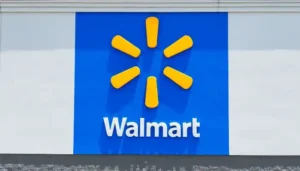Walmart Inc., the largest private employer in the United States, has paused job offers to candidates requiring H-1B work visas in response to a new federal policy that imposes a $100,000 fee on each new H-1B visa application.
The decision, first reported by Bloomberg and confirmed by multiple sources, reflects growing caution among U.S. corporations as the cost and complexity of hiring foreign professionals rise sharply.
The move primarily affects Walmart’s corporate workforce, particularly roles in technology, data, and finance.
Store-level and domestic operations are reportedly unaffected.
The company has not announced a permanent hiring freeze but is reassessing its approach to sponsoring foreign workers under the H-1B program.
Trump Administration’s Visa Fee Rule Triggers Industry-Wide Disruption
The hiring pause follows the Trump administration’s recent overhaul of the H-1B visa program, which includes a steep $100,000 fee for new applications.
The policy aims to curb overuse of the visa system and encourage companies to prioritize domestic hiring.
However, critics argue that the fee disproportionately impacts sectors that rely on specialized talent, including retail, technology, and healthcare.
Walmart’s decision underscores the immediate impact of the rule on corporate hiring strategies.
While the company employs approximately 2,390 H-1B visa holders, this figure is modest compared to tech giants like Amazon, Microsoft, and Meta, which have a higher dependency on foreign skilled workers.
Still, Walmart’s move signals a broader shift in how large employers may navigate immigration-related costs going forward.
Walmart Statement Emphasizes Talent Investment and Caution
In a statement shared with media outlets, Walmart said, “We are committed to hiring and investing in the best talent to serve our customers, while remaining thoughtful about our H-1B hiring approach.”
The company did not specify how long the pause would last or whether it would affect existing visa holders.
The statement suggests that Walmart is not abandoning its use of the H-1B program but is instead taking a measured approach in light of the new financial burden.
Analysts believe that other companies may follow suit, especially those with large corporate teams and international recruitment pipelines.
Impact on Candidates and Broader Workforce Planning
The pause has created uncertainty for candidates awaiting final job offers from Walmart. It has also affected those expecting visa sponsorship through the company.
Recruitment consultants and immigration attorneys report a spike in inquiries from affected professionals seeking alternative options.
The development also raises questions about the future of skilled immigration in the U.S.
Companies are weighing the cost of visa sponsorship against their operational needs.
This may lead to increased investment in domestic training programs or a shift toward remote work arrangements with international talent.
Note: We are also on WhatsApp, LinkedIn, and YouTube to get the latest news updates. Subscribe to our Channels. WhatsApp– Click Here, YouTube – Click Here, and LinkedIn– Click Here.



